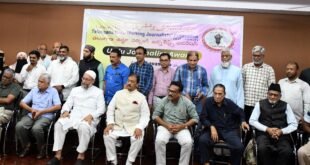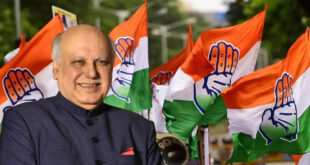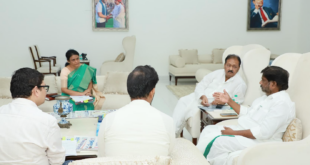By: Asad Mirza
While the Brexit saga keeps on unfolding and the race for the next prime minister ship heats up between Boris Johnson and Jeremy Hunt, an all encompassing and incisive report by the House of Commons on UK-India relations has gone comparatively unnoticed by the media both in the UK and India.
The recently released report, prepared by the House of Commons Foreign Affairs Committee, which includes several members of the past governments who are well exposed to the different dimensions of India-UK relations, very well encapsulates various issues which dominate the optics related to the bilateral relations, reasons for or due to them and how they have been handled by the past governments in the UK.
The report starts on a very pragmatic note by noting that the UK is falling behind in the global race to engage with a rising India. Despite strong ties across investment, education and culture—and a shared commitment to democracy and to the rules-based international order—the relationship is not fulfilling its potential. India’s place in the world is changing fast, and UK strategy has not yet adjusted to this new reality. As the UK prepares to leave the EU, it is time to reset this relationship. UK cannot afford to be complacent or rely on historical connections to deliver a modern partnership. Britain needs to adapt its strategy to India’s enhanced influence, doing more to recognise and respond to New Delhi’s priorities.
Delving deep and incisively into the reasons for this down trend in the relationship and also offering remedial measures, the aptly titled report, ‘Building Bridges: Reawakening UK-India ties’, at very start makes pertinent points regarding the special relationship between the two countries, summing it up saying, ‘The UK needs to adjust its strategy to India’s enhanced influence and power: we should do more to respond to India’s priorities, and should communicate our own objectives more clearly.’
On the key areas of Trade, investment and movement of people the report says, ‘The Government should prioritise trade talks with India and do more to lay the groundwork for an eventual deal.’
While it is true that UK-India trade has “grown rapidly” in the last two decades, but concurrently India’s global trade has grown three times faster. As a result the UK has gone from being India’s second-biggest trade partner in 1998–99 to 17th in 2018.
India, which only has nine bilateral trade agreements—and none with a Western country— has made clear that it is not “in a rush” to make a deal with the UK, and that it would demand concessions on movement of people, which have been a sticking point for the UK in EU-India trade negotiations. The Foreign & Commonwealth Office (FCO) told the committee that India is “not in the first tranche of countries for an FTA”, and that the UK Government was prioritising negotiations that would be “relatively simple”.
On increasing avenues for UK businesses in India in the background of Indian business environment the report recommends the British government to improve access to targeted support for UK businesses in India, particularly start-ups and smaller businesses. And urges the government to appoint a high-level and long-term dedicated trade envoy to India, with experience of the country’s business environment.
Commenting on two areas of most concern amongst the Indians i.e. migration and Indian students, the report realistically notes that facilitating the movement of people is fundamental to the goal of an enhanced partnership. UK migration policy has at times undercut its broader strategic objectives for the relationship—while the “Global Britain” strategy is not being heard clearly in India, the “hostile environment” message is getting through. Movement between the UK and India is what builds the living bridge, and students ensure it will remain strong long into the future.
The committee noted that there is a tension between the FCO’s promotion of a “Global Britain”, and some wider government efforts to reduce net migration. Limits on the movement of people is a major constraint on UK-India ties. Many
Indian nationals come to the UK, and nine in every 10 Indian visa applications to the UK are granted. However, skilled workers, students, and tourists find the system unwelcoming, expensive, and difficult to navigate. This has hit key UK export sectors such as education and tourism, and Indian export sectors such as IT services. On the issue, FCO Minister Markfield told the committee that “a lot of this is driven by the Home Office”.
This has also impacted the number of Indian students going to the UK, while the number of students from China arriving in the UK for higher studies in 2017-18 was more than 100,000 the number for Indian students was only about 20,000, which in 2009-10 used to be around 40,000. In fact, Indian students who go to the US or Australia do not develop ties with the UK, changing the way the UK will be seen for generations to come. The UK’s list of “low risk” countries that enjoy relaxed student visa requirements includes China, but excludes India.
The UK is also losing ground in its share of India’s tourists: France is now a more popular holiday destination than the UK for Indian nationals. Witnesses to the committee highlighted the cost and time investment of applying for visitor visas, even for Indian nationals who travel frequently to the UK. A Visit Britain forecast predicts that, while Indian tourist numbers would grow 52% worldwide by 2025, the number of Indians holidaying in the UK would rise just by mere3%.
The report very categorically notes its concern that the UK government’s policy has been driven by the single-minded objective of reducing net migration, championed by the Home Office, and that the Home Office and the FCO have not been able to play enough of a one unified role in formulating government policy towards India.
The report covers literally all aspects of bilateral relationship between the two countries from security and defence ties, to global governance and FCO’s network in India, on which it is of the view that it should be extended to many more smaller cities in India. On Commonwealth the committee is of the view that if the Commonwealth is to remain relevant, India needs to be involved in setting
its future direction.
Proposals for India’s future role in the Commonwealth should be framed in terms of Indian priorities, including its deepening interest in infrastructure initiatives in Asia, development initiatives in Africa, and the ability to engage with a wide range of states. It will be essential for the UK to make a serious commitment to its role in a rejuvenated Commonwealth if it expects India to do the same.
In sum, foreign policy goals must be balanced against the need for migration controls, but there is no excuse for the policies that have led the UK to lose ground in attracting Indian students and tourists. These groups are vitally important, not just as consumers of a profitable UK export, but as a means of cementing lasting ties between the countries, and generating invaluable goodwill with India’s future leaders. Failure to reverse this trend would squander cultural capital built up over many decades of familiarity, and the international reputation of the UK’s universities and cultural sites. The UK government’s recent steps to offer a six-month post-study work visa, and to set a target for increasing international student numbers, are welcome but do not go far enough.
The report comes out as a well-intended, well-researched, well-documented and pragmatic document, with the sole aim of enhancing the bilateral relations between India and the UK. It flatly lays the duty of delivering at the FCO’s doorsteps and if indeed the next British prime minister follows the committee’s recommendations, then the scenario might change. The Indian government is indeed in favour of reversing the downfall in ties, but not at the cost of sacrificing its ties with other countries, and getting a second-hand deal for its citizens, and for this to be achieved, the British establishment will have to take pragmatic and well-intentioned steps. A political will along with well intentioned and focussed strategy seems to be the need of the hour.
Asad Mirza is a Sr journalist based in New Delhi. In his career spanning more than 20 years, he was also associated with BBC Urdu Service and Khaleej Times of Dubai. He writes on Muslims, educational and international affairs issues.
 Gawah (The Witness) – Hyderabad India Fearless By Birth, Pristine by Choice – First National Urdu Weekly From South India – Latest News, Breaking News, Special Stories, Interviews, Islamic, World, India, National News
Gawah (The Witness) – Hyderabad India Fearless By Birth, Pristine by Choice – First National Urdu Weekly From South India – Latest News, Breaking News, Special Stories, Interviews, Islamic, World, India, National News



